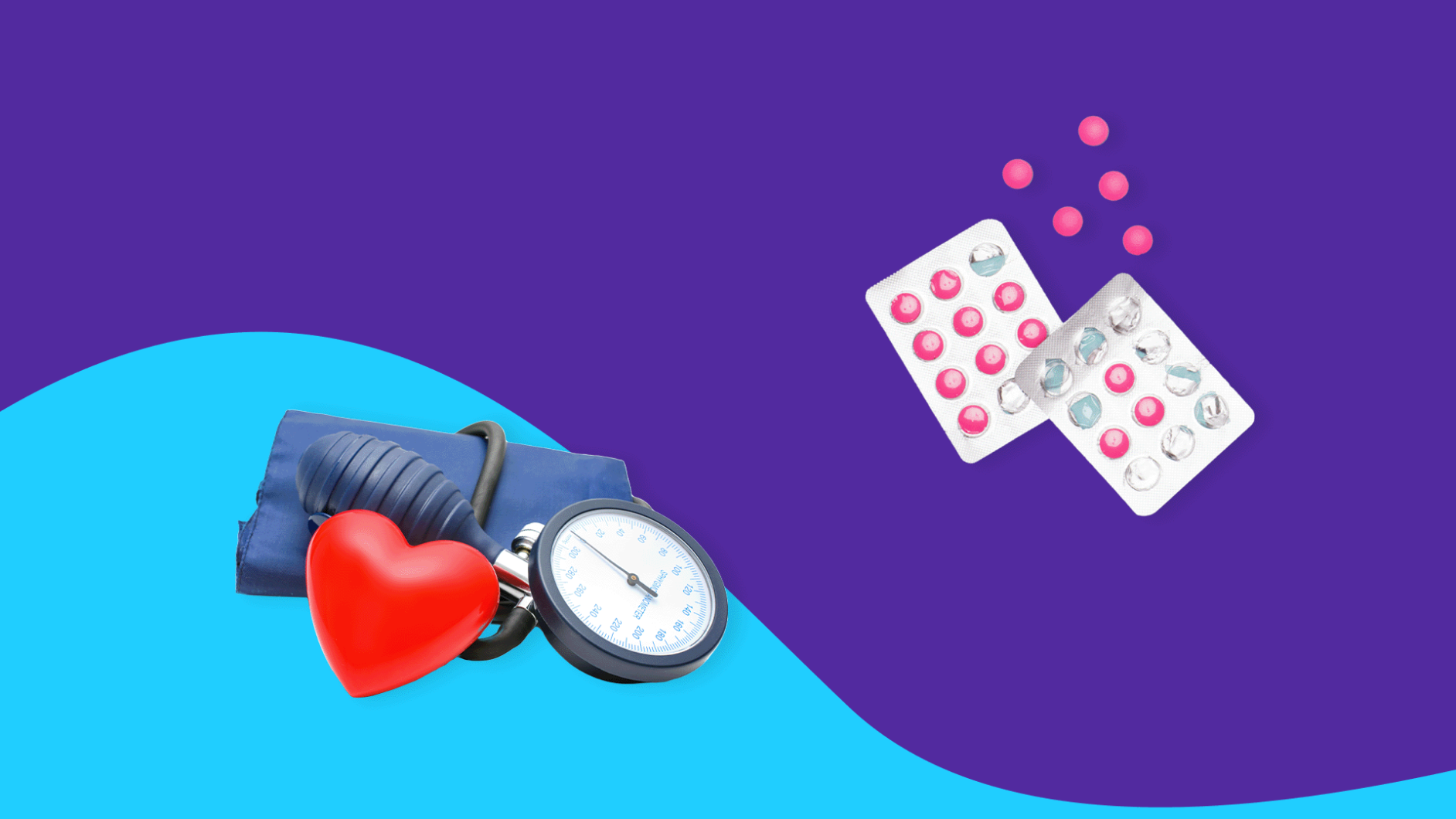If you’ve had allergies, hives, hay fever, or the common cold then it’s likely you’ve considered Benadryl to treat your symptoms. It’s an oral antihistamine that is very effective to help alleviate symptoms like itchy, watery eyes, sneezing, and runny nose. However, it’s an older medication that can come with some unpleasant side effects—like major drowsiness or dry mouth. But, if you have hypertension, does Benadryl raise your blood pressure? Experts offer advice.
How does Benadryl work
Benadryl (diphenhydramine) is a first-generation antihistamine sold over the counter. Like other antihistamines, it works by blocking histamine receptors. Histamine is a chemical in your body that responds to allergens.
“Benadryl suppresses the effects of histamine by blocking its action on a variety of target organs including blood vessels, respiratory airways, and smooth muscles,” says Dung Trinh, MD, an expert in preventive health and inflammation and founder of Healthy Brain Clinic.
Because Benadryl can make you feel sleepier than newer allergy treatments, it is more often used to treat an allergic reaction, hives, or viral symptoms whereas second- and third-generation medications like Zyrtec (cetirizine), Claritin (loratadine), and Allegra (fexofenadine) are generally used to treat or prevent daily allergy symptoms. Benadryl is also sometimes used to prevent motion sickness or to help with nausea.
Does Benadryl affect blood pressure?
“Most antihistamines, including Benadryl, do not have much effect on your blood pressure,” says Brandon Cometti, MD, a dermatologist at Roswell Skin Center in New Mexico. “An antihistamine might react with other medications or other underlying health issues and lead to lower blood pressure, but this is usually not the case.” When taken along with blood pressure medications (such as propranolol or metoprolol), Benadryl may cause your blood pressure to dip too low. Be sure to discuss any pre-existing medical conditions and current medications with a healthcare professional to rule out any potential drug interactions.
“Research studies have shown that patients taking Benadryl may experience a decrease in their blood pressure readings, which may cause symptoms of dizziness and increase the risk of falls,” Dr. Trinh says.
Benadryl side effects
In addition to dizziness and impaired coordination, other common side effects of Benadryl include:
- Sleepiness or sedation
- Headache
- Constipation
- Dry mouth
Possible serious side effects include:
- Seizures
- Confusion
- Arrhythmias
- Anemia
- Heatstroke
In rare cases, Benadryl can raise your heart rate—but research shows that cardiac issues are unlikely unless you use more than the recommended dose.
RELATED: Can you overdose on Benadryl?
What allergy medicine can I take with high blood pressure?
It is generally safe to take Benadryl or another antihistamine if you have high blood pressure—as long as they do not contain decongestants, according to Dr. Cometti. Single-ingredient antihistamine medications are not known to raise blood pressure.
The following meds for seasonal allergies are considered safe for people with high blood pressure:
- Benadryl (diphenhydramine)
- Zyrtec (cetirizine)
- Claritin (loratadine)
- Allegra (fexofenadine)
- Nasal sprays including Flonase (fluticasone) and Nasacort
What allergy medication should I not take with high blood pressure?
Not all allergy treatments are safe for people with hypertension—particularly combination medications that contain decongestants and certain pain relievers.
- Decongestants: “The two main decongestant ingredients found in most allergy, cold, and sinus medications are phenylephrine or pseudoephedrine,” Dr. Cometti explains. “These are known to raise blood pressure and heart rate.” Both of these ingredients should be avoided if you have high blood pressure, unless your doctor approves their use.
- Nonsteroidal anti-inflammatory drugs (NSAIDs): These drugs, which include ibuprofen, which is found in some combination medications, may raise blood pressure slightly. Ask your healthcare provider before using.
The following combination medications are examples of drugs that may increase your blood pressure:
- Allegra-D (fexofenadine/pseudoephedrine)
- Zyrtec-D (cetirizine/pseudoephedrine)
- Claritin-D (loratadine/pseudoephedrine)
- Advil Allergy and Congestion Relief (chlorpheniramine/ibuprofen/phenylephrine)
- Sudafed (pseudoephedrine)
- Sudafed PE (phenylephrine)
- Benadryl Allergy Plus Congestion (diphenhydramine/phenylephrine)
- Tylenol Cold + Flu + Cough Night (acetaminophen/dextromethorphan/doxylamine/phenylephrine)
The list above does not contain all medications that may affect your blood pressure. Before you take any medication, you should carefully read the ingredients list and seek medical advice from your healthcare provider or pharmacist.











